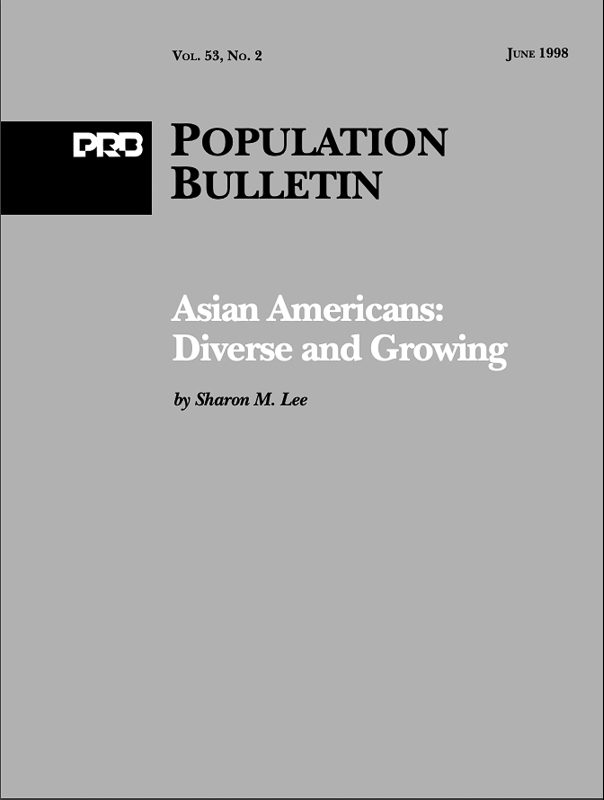Asian Americans: Diverse and Growing
Population Bulletin 53, No. 2 (1998)

Population Bulletin 53, No. 2 (1998)
Middle East and North Africa (MENA) program, initiated in 2001 with funding from the Ford Foundation, responds to the region's need for timely and objective information on population, socioeconomic, and reproductive health issues.
By increasing the flow of accurate, understandable information about population, family planning, and reproductive health to policy audiences, IDEA enhances efforts carried out by civil society, the public sector, the development community, and donors.
The Evidence Project uses implementation science—the strategic generation, translation, and use of evidence—to improve family planning policies, programs, and practices. Led by the Population Council, the five-year project (2013–2018) is investigating which strategies work best in improving, expanding, and sustaining family planning services.

PRB produced a global interactive database and a series of regional policy reports and data sheets that highlight the importance of taking action now to address noncommunicable disease (NCD) risk factors among youth.
Investment in effective policy and program interventions for youth family planning (FP) improves the use of data and evidence for FP advocacy.
The BRIDGE project provided influential audiences in these countries and in the international development community with up-to-date information and the skills to interpret and use it for improving health policies and practices.
In collaboration with Sabre Systems, Inc., PRB conducted survey research to collect feedback from a diverse group of Small Area Health Insurance Estimates (SAHIE) data users.
The interactive map and report present available data for 20 specific indicators, disaggregated by age and sex when possible.